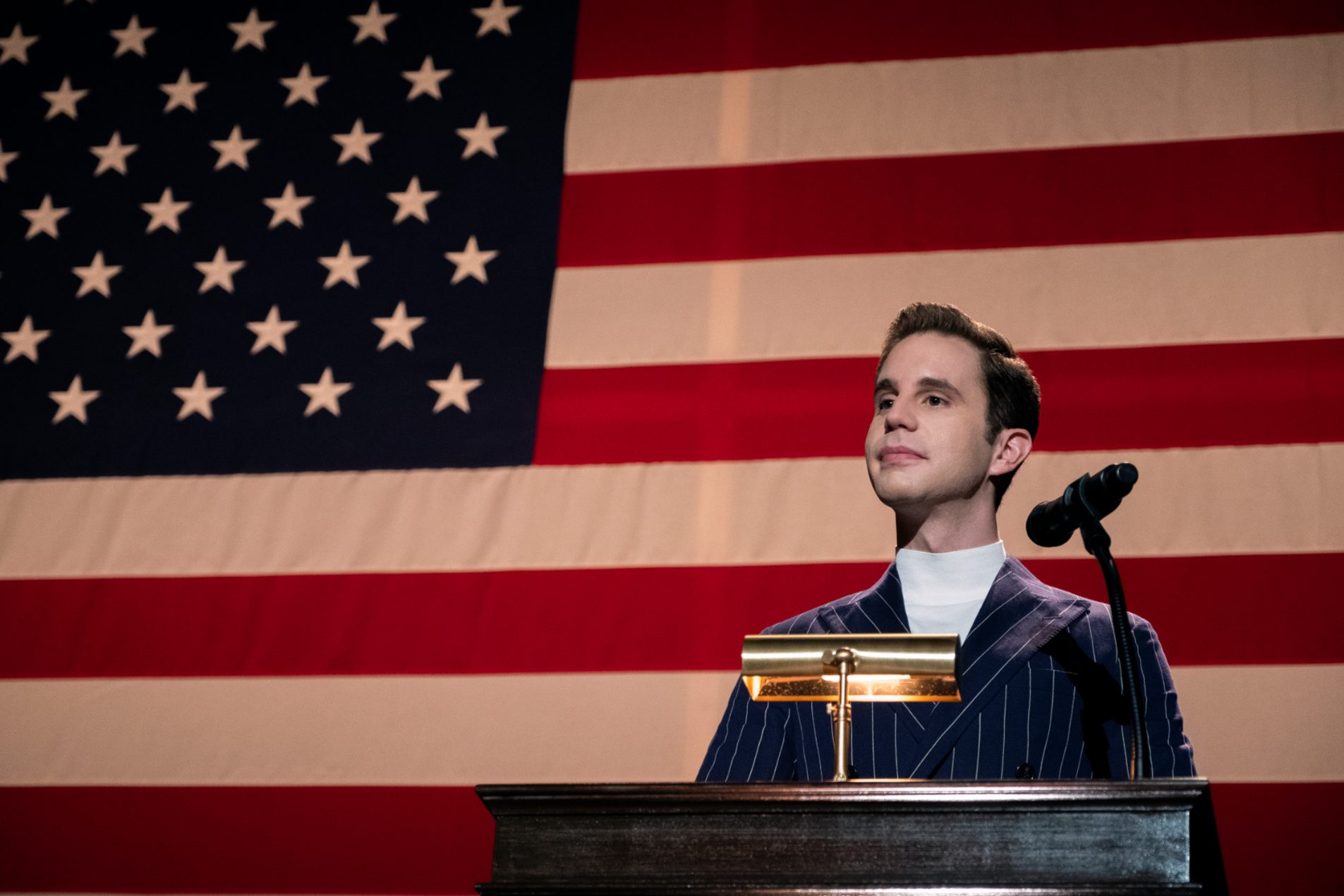Ryan Murphy, Brad Falchuk and Ian Brennan’s latest series, “The Politician,” released its second season on Netflix last month. While the first season followed Payton Hobart (Ben Platt, “Pitch Perfect”) in his bid for student-body president of his Santa Monica high school, the new season centers around his election for the state Senate as a stepping stone to one day becoming president of the United States.
The previous season’s finale, set three years after his high school presidential bid, introduced New York University student Payton, drifting aimlessly and worrying his friend and roommate, James (Theo Germaine, “Work In Progress”), with his developing alcohol problem.
His high school campaign rival, Astrid (Lucy Boynton, “Bohemian Rhapsody”), also living in the city, discovers that state Senate majority leader Dede Standish (Judith Light, “Transparent”), currently unopposed in her reelection campaign, is in a three-way marriage, or “throuple.”
Payton’s team, composed of high school sweetheart Alice (Julia Schlaepfer, “Madam Secretary”); advisors James and McAfee (Laura Dreyfuss, “Glee”); his former VP candidate, Infinity (Zoey Deutch, “Set It Up”); and Astrid’s former VP candidate, Skye (Rahne Jones in her debut), convince him to run against Dede. They think he can win the election by sharing Astrid’s knowledge and running on a one-issue platform. In the final moments of the episode, he agrees and launches his campaign.
https://www.youtube.com/watch?v=e-wH7hD9Liw
The second season picks up a month before Election Day. Payton is trailing in the polls, and his one-issue platform has shifted from the Metropolitan Transit Authority to climate change. The change appears to be a deliberate switch by the show’s producers to an issue more engaging to its international audience. It also sets up the theme coloring the whole season: the generation gap.
Payton is a young, energetic college student, while Dede is a septuagenarian political insider already tapped for a VP candidacy. To highlight the generational divide, the episode looks through the eyes of the voters, particularly those of a mother and daughter. The mother fervently supports Dede, while the daughter serves as an Election Day volunteer for Payton’s campaign. By the end of the episode, the mother decides to vote for Payton, as she now thinks that it is time to pass the baton to her daughter’s generation.
The new season of “The Politician” is much more grounded in reality than the first, which had the same chaotic energy of the later seasons of “Glee,” the first collaboration between Murphy, Falchuk and Brennan. In Season 2, the chaos is toned down without compromising the characters or, more importantly, the spirit of the show. Now, the writers let their overall plot threads take more natural runs, spanning all seven episodes, instead of basically telling a season’s worth of stories in the first four. This dramatically improves the overarching story of “The Politician.”
The cinematography has shifted between the two seasons as well. In the grand mansions and on the picturesque high school campus of Season 1, each shot was full of bright colors and the trappings of opulent wealth. In Season 2’s New York, scenes are on smaller sets, with actors closer to the camera, and there are more neutral colors and fewer embellishments.
The remaining chaos of “The Politician” comes from the gubernatorial run of Payton’s adoptive mother, Georgina (Gwyneth Paltrow, “Shakespeare In Love”). In a debate, she calls for California to secede from the nation. Meanwhile, the most outlandish turn in the main storyline is Payton’s threesome with Alice and Astrid, during which he manages to impregnate both of them. Upon the reveal, he comments with by far the most insane line of the season: “God, my sperm is as ambitious as I am.”
Perhaps the most bizarre twist, though, is the seeming erasure of many characters’ queer identities. A first season poster featured River Barkley (David Corenswet, “Hollywood”), Payton’s original campaign rival for student body president, with an arm around Astrid but facing Payton. The caption read, “We promise you BI-partisanship,” but the new season doesn’t exactly deliver.
Georgina sleeps with both a man and a woman on screen. There’s a three-way between Alice, Astrid and Payton, but Alice only initiates it in an attempt to keep Astrid loyal to the campaign, and Astrid’s motives aren’t entirely clear. That’s kind of it.
The throuple could have been an interesting exploration of polyamorous relationships, but William, the third member in Dede and Marcus’ marriage, leaves them for Hadassah, Dede’s chief of staff (Bette Midler, “The Rose”), in the second episode when he realizes he prefers being someone’s one and only.
McAfee and Skye’s relationship, which McAfee described as something she “want[s] more than anything,” goes unaddressed. There’s a montage of her ending dates with both men and women, claiming in the voiceover that it’s mostly women, but we only see her sleep with a man on screen. The flash-forward finale reveals she is engaged to a never-before-seen male character. Skye never has any partners mentioned.
Prior to the start of “The Politician,” Payton and River, a man, had an affair. Payton went so far as to threaten to out River in order to win the election. Though River committed suicide about midway through the show’s pilot, he appears periodically in flashbacks and as a sort of spiritual guide to Payton.
As much as I love Alice, it’s Payton and River who had the love story of the first season. River made Payton feel things he hadn’t felt before, and the two were in love with each other, despite both dating women at the time. In the second episode of the new season, Astrid and Payton talk about their failed threesome with River. Payton claims he wasn’t attracted to River and doubts he was bisexual, much less gay. Literally two lines before, Astrid says she ended the threesome before it could start because she knew without a doubt River loved Payton more than her.
At best, then, “The Politician” is avoiding labels. At worst, they’re queerbaiting viewers, and retconning sexualities where they can.
All in all, the new episodes of “The Politician” are exactly what you’d expect from the creative trio: distinctive characters, twists and turns, dialogue that doesn’t always sound human and, at the end of the day, fun. You have to ask, though: When you have a creator (Murphy) who has consistently been heralded as bringing stories of underrepresented individuals to the screen, what does the show achieve by copping out on part of what made it so interesting?

















